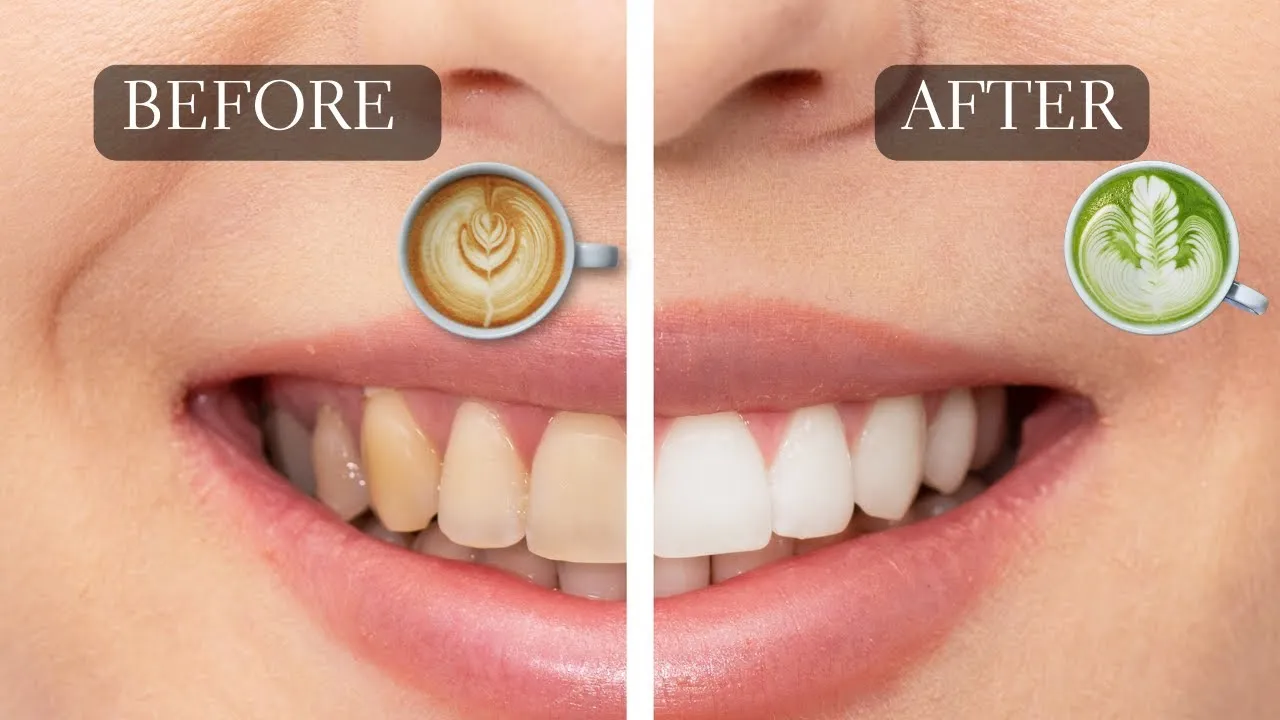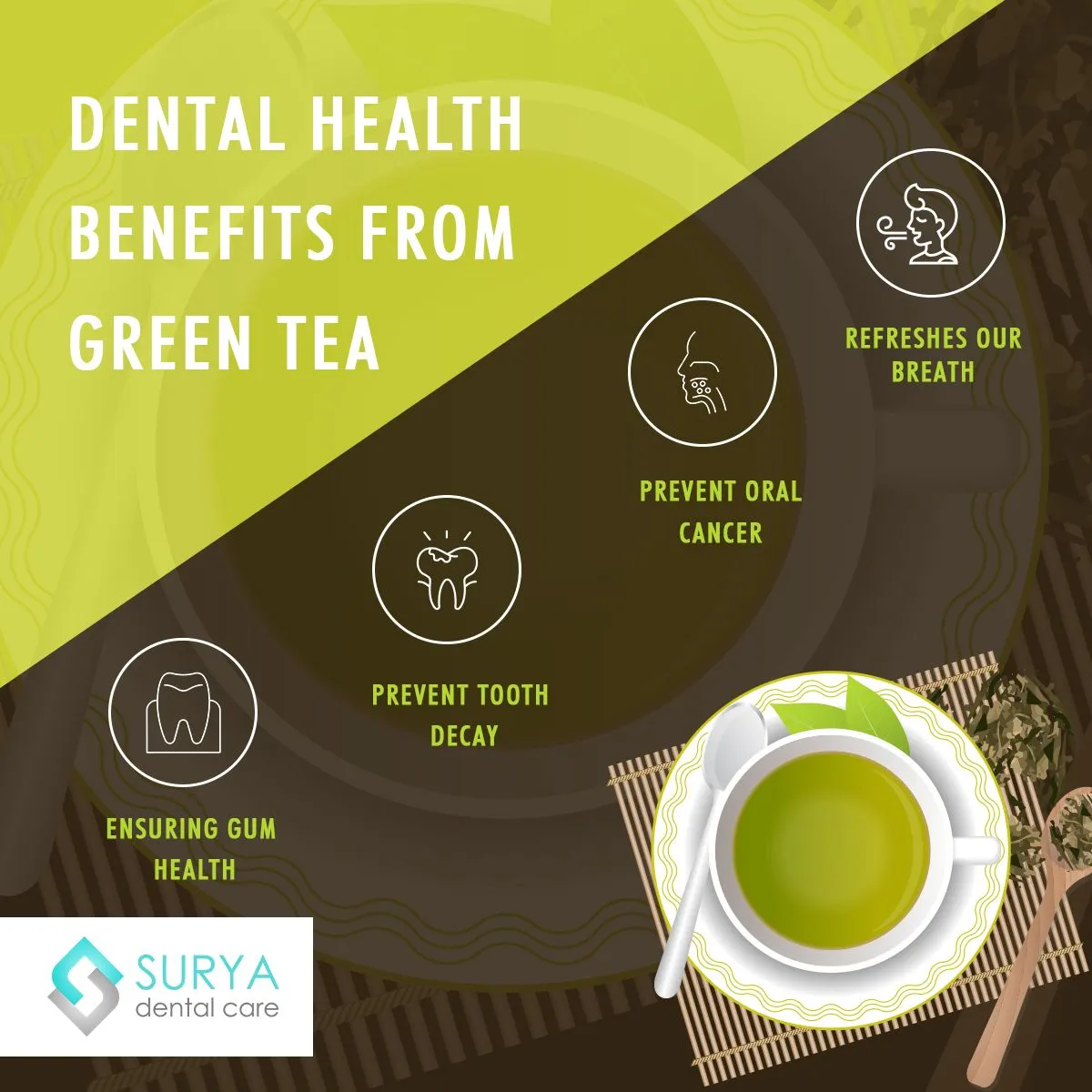Green Tea & Teeth Whitening Benefits
Teeth whitening treatments are incredibly popular, offering a quick path to a brighter, more confident smile. However, maintaining that dazzling effect requires thoughtful aftercare. One question often arises Is it okay to drink green tea after teeth whitening? The answer, surprisingly, is multifaceted, as green tea offers a unique blend of benefits and potential drawbacks in this context. This article delves into the relationship between green tea and teeth whitening, exploring the advantages, potential challenges, and best practices for incorporating this beverage into your routine after a whitening procedure. We’ll cover the top 5 benefits, as well as how to make the most of it while safeguarding your freshly whitened smile. So, let’s dive in and explore the synergy between green tea and your quest for a radiant smile.
Benefit 1: Antioxidant Power
Green tea is renowned for its high concentration of antioxidants, particularly catechins. These potent compounds combat free radicals, which are unstable molecules that can damage cells and contribute to inflammation. After teeth whitening, your enamel may be slightly more porous and vulnerable. Antioxidants in green tea can help neutralize free radicals in your mouth, potentially aiding in healing and protecting your teeth from further damage. The antioxidant properties can also contribute to overall oral health by supporting healthy gum tissue and reducing the risk of infections. Drinking green tea can therefore provide an extra layer of protection during the sensitive period following a whitening treatment, ensuring your gums and teeth get the support they need.
Benefit 2: Fighting Inflammation

The anti-inflammatory properties of green tea are another significant advantage, especially after teeth whitening. Whitening treatments can sometimes cause temporary sensitivity or mild inflammation in the gums. Green tea contains compounds like epigallocatechin gallate (EGCG), known for its anti-inflammatory effects. By consuming green tea, you can potentially soothe inflamed tissues and reduce discomfort. This can also speed up the recovery process, allowing you to enjoy your brighter smile sooner. By including green tea in your post-whitening routine, you’re providing your mouth with a natural defense against inflammation, promoting a comfortable and healthy recovery. This can contribute to a better overall experience following the whitening procedure.
Benefit 3: Boosts Oral Health
Green tea can play a significant role in boosting overall oral health. It contains natural fluoride, which is crucial for strengthening tooth enamel and preventing cavities. Fluoride helps remineralize the enamel, making it more resistant to acid attacks from foods and bacteria. Furthermore, the antibacterial properties of green tea can help inhibit the growth of harmful bacteria in the mouth, which reduces the risk of plaque buildup and gingivitis. This can contribute to a healthier mouth environment and support the longevity of your teeth whitening results. By incorporating green tea, you’re not only aiding the recovery process post-whitening but also promoting a long-term healthy smile.
Benefit 4: Hydration and Saliva Production
Staying hydrated is crucial for overall health, and the same holds true for your oral health, particularly after teeth whitening. Green tea, being a hydrating beverage, contributes to saliva production. Saliva is a natural defense mechanism, as it helps wash away food particles and bacteria, neutralizing acids that can erode enamel. Adequate saliva flow also helps to remineralize teeth. In the post-whitening phase, when your teeth might be slightly more vulnerable, maintaining good hydration and saliva production is crucial. Green tea supports these processes, ensuring your mouth stays clean and your teeth are well-protected. This can help extend the effects of teeth whitening while keeping your mouth healthy.
Benefit 5: Stain Prevention

Although green tea itself can, in some cases, cause staining (more on that below), it may also have properties that assist in preventing stains. The antioxidants in green tea can help to protect the teeth from staining caused by food and drinks, especially in the critical period after whitening. While it’s not a foolproof solution, the presence of antioxidants may provide some level of protection against discoloration. Therefore, when consumed mindfully, green tea can complement your whitening treatment by potentially reducing the risk of future stains. This can help you maintain your brighter smile for a longer period, supporting both the cosmetic and health aspects of your oral care routine. Remember that how you prepare and consume green tea matters to maximize its benefits.
How to Incorporate Green Tea
Incorporating green tea into your post-whitening routine requires a balanced approach to ensure you reap the benefits while minimizing potential drawbacks. The key lies in making informed choices about the type of green tea, how it’s brewed, and when it’s consumed. By following these guidelines, you can leverage the advantages of green tea while protecting your newly whitened smile. This will ensure you get the best outcome from your whitening treatment. Remember, consistency and moderation are the cornerstones of a successful and enjoyable aftercare regimen.
Choosing the Right Green Tea
Not all green teas are created equal when it comes to teeth whitening aftercare. The quality and composition of the tea can significantly impact its effects. Opt for high-quality, minimally processed green tea leaves. These teas often contain higher concentrations of beneficial compounds. Avoid green teas with added ingredients, such as artificial flavors or sweeteners, as these can potentially contribute to staining or sensitivity. Consider purchasing tea bags or loose-leaf teas from reputable brands known for their purity. Also, the tea’s origin can influence its properties. Some varieties may contain more antioxidants than others. Consider looking into Japanese green teas, like matcha or sencha, which are rich in nutrients. By choosing the right green tea, you can ensure you receive maximum benefits while minimizing potential risks to your newly whitened teeth.
Brewing Techniques

The method of brewing your green tea influences the release of beneficial compounds and the potential for staining. Use the proper water temperature for green tea to avoid bitter flavors and prevent excessive tannin release. Generally, this means using water that is slightly below boiling point (around 170-180°F or 77-82°C). Brewing green tea for too long can release more tannins, which can contribute to staining. Follow the brewing instructions on the tea package and avoid steeping the leaves for more than 2-3 minutes. Consider using a tea infuser or a tea bag to easily remove the leaves after brewing. This helps control the steeping time and prevents over-extraction of tannins. By perfecting your brewing technique, you ensure a delightful cup and a gentle experience for your teeth.
Timing is Everything
The timing of when you consume green tea in relation to teeth whitening is essential for optimal results. After a teeth whitening procedure, it’s best to avoid drinking green tea, or any strongly colored beverage, for at least 24-48 hours. This allows the enamel to re-harden and prevents any potential staining. If you’re a regular green tea drinker, consider drinking it away from meals and brushing your teeth shortly after consuming the tea. Brushing helps remove any tea residue and minimizes the risk of staining. Using a straw can also reduce contact between the tea and your teeth. Furthermore, avoid drinking green tea before bed to limit prolonged exposure to potential staining agents. By being mindful of the timing, you can protect your investment in teeth whitening.
Potential Drawbacks & Considerations
While green tea offers numerous benefits, it’s important to be aware of potential drawbacks and considerations when incorporating it into your post-whitening care. Understanding these factors ensures you can make informed choices and safeguard your smile. Addressing these concerns proactively helps you maintain the health and brilliance of your teeth. By considering these points, you can enjoy the advantages of green tea while mitigating potential issues.
Teeth Sensitivity

Teeth whitening procedures can sometimes increase teeth sensitivity, especially in the initial days after treatment. While green tea generally doesn’t cause sensitivity directly, the caffeine content in some varieties might have a mild stimulating effect, potentially exacerbating any existing sensitivity. If you experience increased sensitivity, it’s best to monitor your intake of green tea or choose decaffeinated options. Also, make sure you’re using a toothpaste designed for sensitive teeth. This can help minimize any discomfort and support your teeth’s recovery after whitening. Pay close attention to your body’s signals and adjust your green tea consumption accordingly to maintain comfort.
Staining
The most significant concern regarding green tea and teeth whitening is the potential for staining. Green tea contains tannins, which are natural compounds that can stain teeth over time. While the staining is less pronounced than with coffee or black tea, it’s still a factor to consider, especially immediately after teeth whitening when your enamel is more porous. To mitigate the risk of staining, be mindful of your consumption habits. Drink green tea in moderation, and practice good oral hygiene, including brushing and flossing after each consumption. Using a straw can also help reduce direct contact between the tea and your teeth, minimizing the likelihood of stains. If you’re worried about staining, consult your dentist about professional cleaning or whitening treatments to keep your teeth bright.
Expert Recommendations
To gain further clarity, it’s always a good idea to consult with dental professionals for tailored advice. Their insights can help you make informed decisions. Dentists and oral health specialists offer valuable perspectives based on individual needs and the specifics of your teeth whitening procedure. They can provide recommendations that consider your oral health profile, including the type of whitening treatment you’ve undergone and any existing sensitivity issues. Seeking professional guidance ensures you receive personalized advice. Furthermore, dentists can offer recommendations on appropriate oral hygiene practices. They can help you create a plan to maintain and prolong the results of your teeth whitening. A dentist’s input offers a complete perspective on green tea and teeth whitening.
Dentist’s Perspective

Dentists generally agree that green tea can be incorporated into your routine after teeth whitening, but with caution. Most dentists recommend waiting at least 24-48 hours after a whitening treatment before consuming green tea. They often suggest drinking green tea in moderation, avoiding it right after the whitening procedure and following it up with brushing. Dentists often advise patients to be aware of the potential for staining and to maintain excellent oral hygiene practices. They may also recommend using a toothpaste that is specifically formulated to protect against staining and maintain your teeth’s brightness. Following a dentist’s recommendations is important to protect your teeth. They will help you establish a sustainable strategy for enjoying green tea while maximizing your whitening results.
Final Thoughts
Green tea offers a promising blend of benefits and challenges for those seeking a brighter smile. While it boasts potent antioxidants and anti-inflammatory properties that support oral health, it also carries the potential for staining. To make the most of green tea, practice moderation, choose high-quality tea, and use careful brewing methods. Be sure to adhere to the advice provided by your dentist. By carefully balancing these factors, you can incorporate green tea into your post-whitening routine and maintain the brilliance of your smile. This will allow you to enjoy the health advantages of green tea while preserving the radiant results of your teeth whitening. Ultimately, a mindful and balanced approach is the key to success.
